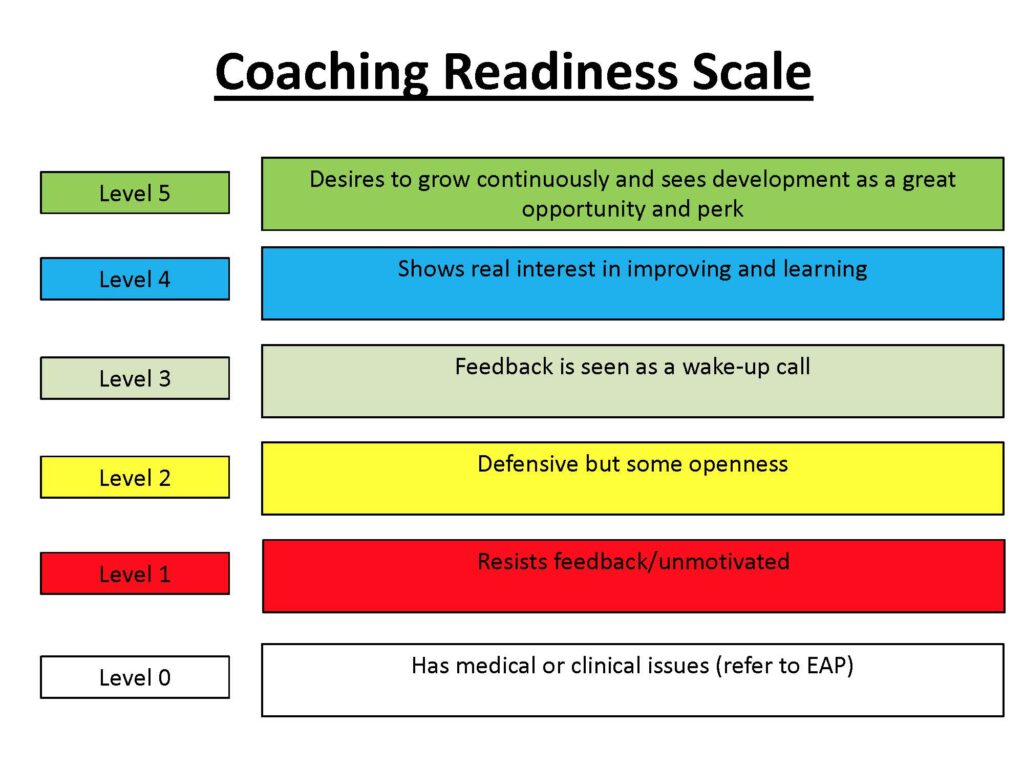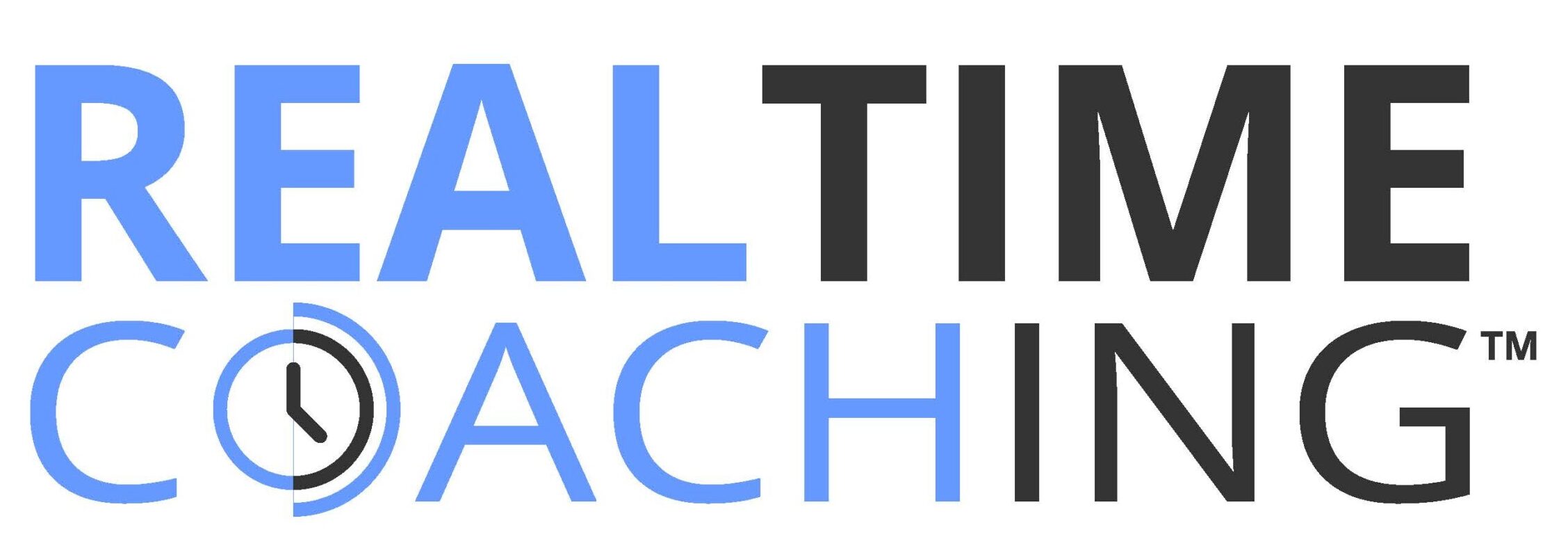Not everyone is coachable. What does it even mean to be coachable? Are you coachable? Look at this “Coaching Readiness Scale” created by Lee Hecht Harrison and assign yourself a level.

If you gave yourself a Level 3, 4, or 5 you believe you are coachable. The biggest difference between Level 4 and Level 5 is usually a Level 4 is a “good soldier” and the coach is pulling level 4’s. A level 5 is proactive and pulling the coach (in a positive manner) throughout. If you gave yourself a level 1 or 2 you are probably not ready and you are more likely to view coaching somewhere between “a total waste of my time” and “not providing me any real value”.
Here’s an example of a level 2 when it comes to coaching readiness.

Here’s level 1
The NCSA wrote a nice piece on what it means for a student-athlete to be coachable here: https://www.ncsasports.org/recruiting/how-to-get-recruited/coachable?utm_source=newsletter&utm_medium=email&utm_content=blog&utm_campaign=article_1&mktgcid=newsletter
According to the NCSA (Next College Student Athlete) 35% of college coaches put “character” as the #1 attribute they look for in a recruit ahead of both athletic ability and academics.
NCSA describes the difference between being coachable and uncoachable
Coachable: Understands criticism is not personal, responds positively to criticism by listening and applying feedback, and applies what they’ve been taught to improve their game.
Uncoachable: Takes criticism personally, becomes defensive when receiving feedback, and fails to apply what they’ve been taught.
The coach definitely plays an important role in this relationship and there are coaches more effective than others. We will explore what it means to be a good coach on a different day. For today, think about how coachable you are as well as those you work with.
If you are looking for a RealTime executive coach that brings a simple, practical, entrepreneurial style to the coaching process, send me an email: [email protected]
